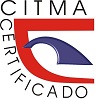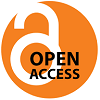Effective Literacy in Panama: Development of an Innovative Methodology
Effective Literacy in Panama: Development of an Innovative Methodology
Keywords:
Literacy, methodology, illiterate people, social transformation, quality of education, community leadersAbstract
This article aims to present an innovative methodology to contribute to the improvement of the National Literacy Program in Panama. A historical-logical analysis addressed the main contemporary challenges facing the Ministry of Social Development (MIDES) as the institution that manages the program. The most complex challenges relate to the selection and training of volunteers, the instability of trainers, material security, the participation of community leaders in identifying illiterate individuals, and the contextualization of the program within the traditions of indigenous communities. The article recognizes the opportunities offered to participants in promoting active learning, where illiterate individuals construct their own knowledge, focusing on the development of communication skills such as speaking, reading, and writing. The results of a trend study are presented, developed through the application of methods such as documentary and statistical analysis of the Literacy Program, and the main achievements and barriers it contributed to addressing this phenomenon among the illiterate population, a complex issue. However, it is essential to contribute to individual growth and their collaboration in community social transformation by fostering critical awareness in participants. The methodology would improve the intervention of community leaders and Mides promoters in identifying illiterate individuals, an aspect that favors their integration into the transformation of Panamanian society. It would also analyze the threats facing literacy in order to explore future prospects for its continuous improvement.
Downloads
References
Cabrera, M. (2023). El vínculo escuela-familia-comunidad en el contexto científico tecnológico actual. VARONA, (77). (mayo-agosto),. http://scielo.sld.cu/scielo.php?script=sci_arttext&pid=S1992-82382023000200004
Cedeño, L. (2025). La alfabetización: Revisión de estrategias de formación continua en contextos educativos a nivel mundial. Revista Científica de Innovación Educativa y Sociedad Actual "ALCON", 5 (4). (julio-septiembre). Ecuador, pp 428-441. https://soeici.org/index.php/alcon/article/view/769
Chávez, J y Pérez, L. (2015). Fundamentos de la Pedagogía. Parte I. La Habana: Editorial Pueblo y Educación, ISSN: 978-13-3945-4 https://www.google.com.pa/books/edition/Fundamentos_de_Pedagog%C3%ADa_General_Parte/DxUeEAAAQBAJ?hl=es&gbpv=1&printsec=frontcover
Esponda, D. y González, E. (2024). La prevención social y el trabajo educativo preventivo en Honduras: aportaciones de la Cátedra Morazánica. Revista Científica EduSol, 24 (88). (julio-septiembre). Guantánamo. http://scielo.sld.cu/scielo.php?script=sci_arttext&pid=S1729-80912024000300106
González, E. y Esponda, D. (2025). El proceso educativo-preventivo en Honduras. Retos y Perspectivas. Editorial Sabio Valle de la Secretaría de Educación. Honduras. ISBN: 978-99979-41-00-8. https://isbnhonduras.deca.cerlalc.org/catalogo.php?mode=detalle&nt=10964
Mc Kay, L. (2024). Avance Comunitario en Panamá mediante Estrategias de Educación Popular. Ciencia Latina, 8 (2). (marzo-abril). México. https://ciencialatina.org/index.php/cienciala/article/view/11300/16558
Mc Kay, L. (2024). Proyectos sociales comunitarios, herramienta para el desarrollo humano a nivel local. Ciencia Latina, 8( 2). (marzo-abril). México. https://ciencialatina.org/index.php/cienciala/article/view/11299/16556
Tamayo, J. (2021). Otra mirada desde la escuela cubana de alfabetización y educación de jóvenes y adultos en el siglo XXI. Fundamentos, resultados, impactos y trascendencia. Revista electrónica científico-pedagógica, V.14. No.3 (septiembre-diciembre). Cuba, pp 161-174. https://www.cienciaspedagogicas.rimed.cu/index.php/ICCP/article/view/337
UNESCO (2020). Lo que necesita saber sobre el derecho a la educación. https://www.unesco.org/es/articles/lo-que-necesita-saber-sobre-el-derecho-la-educacion
UNESCO (2025). Informe Día Internacional de la Alfabetización. https://www.unesco.org/es/days/literacy
Published
How to Cite
Issue
Section
License
Copyright (c) 2025 Eugenio Ramón González Pérez, Marijulia Barría Moscoso

This work is licensed under a Creative Commons Attribution-NonCommercial 4.0 International License.
Horizonte Pedagógico es una revista Open Access, lo que quiere decir que todo su contenido es accesible libremente sin cargo para el lector o su institución. Los usuarios están autorizados a leer, descargar, copiar, distribuir, imprimir, buscar o enlazar a los textos completos de los artículos de esta revista sin permiso previo del editor o del autor, de acuerdo con la definición BOAI de open access. Los autores que publican en esta revista están de acuerdo con los siguientes términos: Los autores conservarán los “Derechos de autor” y garantizan a la revista el derecho de ser la primera publicación del trabajo. La revista se encuentra protegida bajo una licencia internacional de Creative Commons Attribution License Atribución 4.0 Internacional (CC BY NC 4.0), que permite a otros compartir (copiar y redistribuir el material en cualquier medio o formato) y adaptar (remezclar, transformar y construir a partir del material), para cualquier propósito, incluso comercialmente. Bajo las siguientes condiciones: atribución (usted debe dar crédito de manera adecuada, brindar un enlace a la licencia, e indicar si se han realizado cambios y no comercial — Usted no puede hacer uso del material con propósitos comerciales. Puede hacerlo en cualquier forma razonable, pero no de forma tal que sugiera que usted o su uso tienen el apoyo de la revista o el autor de la publicación.






















